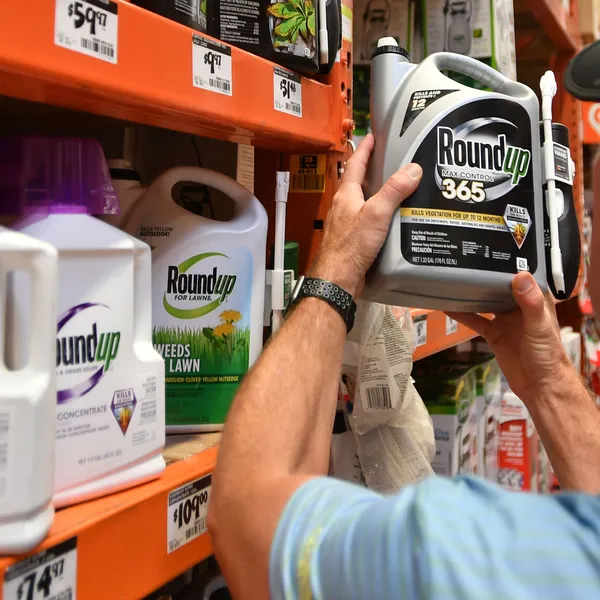A trove of Monsanto's internal records released on Tuesday raises serious concerns about company efforts to influence media reports and scientific research related to risks posed by is popular weedkiller, Roundup.
As the New York Times reported:
Documents show that Henry I. Miller, an academic and a vocal proponent of genetically modified crops, asked Monsanto to draft an article for him that largely mirrored one that appeared under his name on Forbes's website in 2015. Mr. Miller could not be reached for comment.
A similar issue appeared in academic research. An academic involved in writing research funded by Monsanto, John Acquavella, a former Monsanto employee, appeared to express discomfort with the process, writing in a 2015 email to a Monsanto executive, "I can't be part of deceptive authorship on a presentation or publication." He also said of the way the company was trying to present the authorship: "We call that ghost writing and it is unethical."
A Monsanto official said the comments were the result of "a complete misunderstanding" that had been "worked out," while Mr. Acquavella said in an email on Tuesday that "there was no ghostwriting" and that his comments had been related to an early draft and a question over authorship that was resolved.
The dozens of documents include text messages and emails among Monsanto employees discussing Roundup's safety, as well as their communications with writers and researchers. They were released by one of the law firms representing a group of gardeners, farmers, and agricultural workers who are suing Monsanto over allegations that glyphosate, a key chemical in Roundup, caused them to develop cancer. These documents follow records released in March that, among other things, revealed company ties to an official at the Environmental Protection Agency (EPA), prompting an investigation into possible collusion between Monsanto and the EPA staffer.
"This is a look behind the curtain," Brent Wisner, an attorney from the firm that released the documents, told journalist Carey Gillam, who is also the research director for U.S. Right to Know. "These show that Monsanto has deliberately been stopping studies that look bad for them, ghostwriting literature and engaging in a whole host of corporate malfeasance. They (Monsanto) have been telling everybody that these products are safe because regulators have said they are safe, but it turns out that Monsanto has been in bed with U.S. regulators while misleading European regulators."
"This trove marks a turning point in Monsanto's corporate life....We can now prove that all Monsanto's claims about glyphosate's safety were myths concocted by amoral propaganda and lobbying teams."
-- Robert F. Kennedy, Jr., attorney
"This trove marks a turning point in Monsanto's corporate life," Robert F. Kennedy, Jr., another attorney involved with the class action suit, told Gillam. "They show Monsanto executives colluding with corrupted EPA officials to manipulate and bury scientific data to kill studies when preliminary data threatened Monsanto's commercial ambitions, bribing scientists and ghostwriting their publications, and purchasing peer review to conceal information about Roundup's carcinogenicity, its toxicity, its rapid absorption by the human body, and its horrendous risks to public health and the environment....We can now prove that all Monsanto's claims about glyphosate's safety were myths concocted by amoral propaganda and lobbying teams."
Glyphosate, Roundup's active ingredient, is the most heavily-used agricultural chemical in history. Although the popular weed-killer has been approved by U.S. regulators for decades, glyphosate is often condemned by environmentalists and food safety advocates, who worry about hormone disruption, and the contentious debate over whether glyphosate causes cancer--as well as its role in the "pesticide treadmill." It was deemed a "probable human carcinogen" by the World Health Organization (WHO)in 2015, and in June California announced it would add glyphosate to the state's list of known cancer-causing chemicals.
More than 700 pages of documents also reveal Monsanto's efforts to discredit the WHO classification, which was issued by the agency's International Agency for Research on Cancer (IARC). As Splinter reported:
Earlier this year Reuters published a supposedly damning story which posited that the academic who led IARC's inquiry into glyphosate mislead the organization about his findings.
Though, as Carey Gillam of the Huffington Post noted, the journalist who authored the story, Kate Kelland, relied on documents that were likely given to her by Monsanto. The documents Kelland cited were unavailable to the public at the time, but Monsanto had copies. Kelland's story also relied on a paid consultant and scientist for Monsanto, Bob Tarone.
Monsanto's continuous effort to discredit WHO's research, as revealed the numerous published documents, only serves to taint its own insistence that Roundup isn't toxic. If glyphosate was truly harmless, Monsanto would not have bribe, pressure, or persuade academics to say otherwise.
The release of Monsanto's "secret documents" was widely supported and circulated by environmentalists and food safety advocates online:



